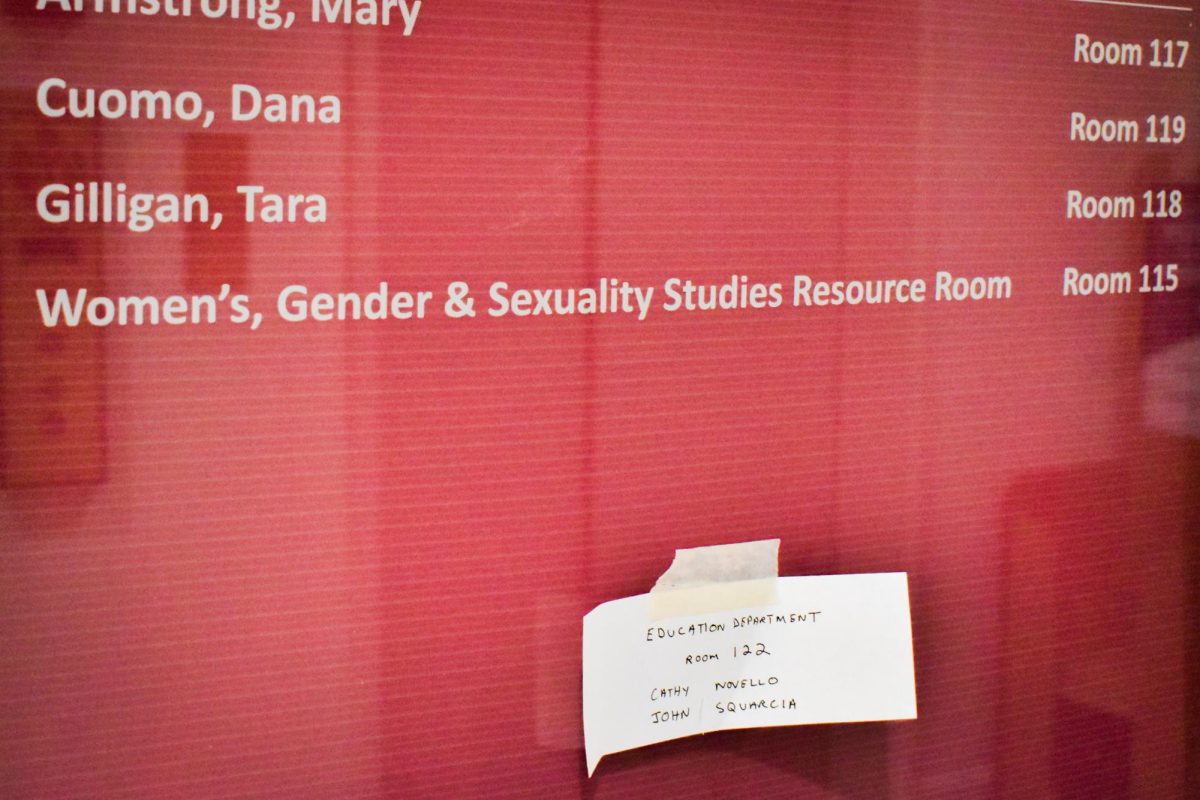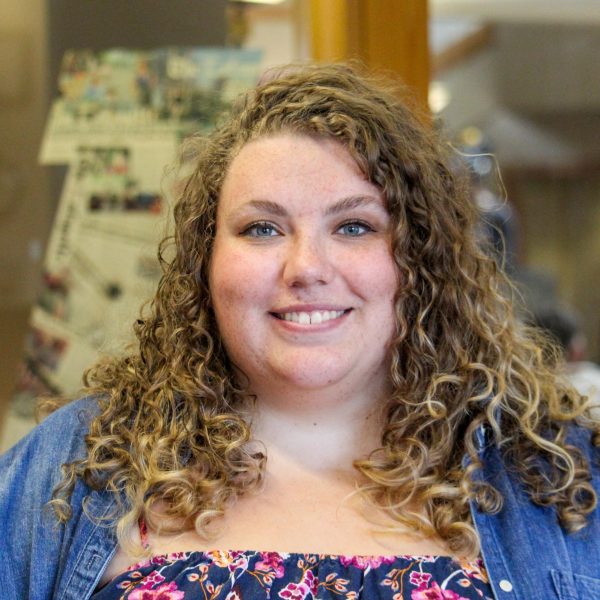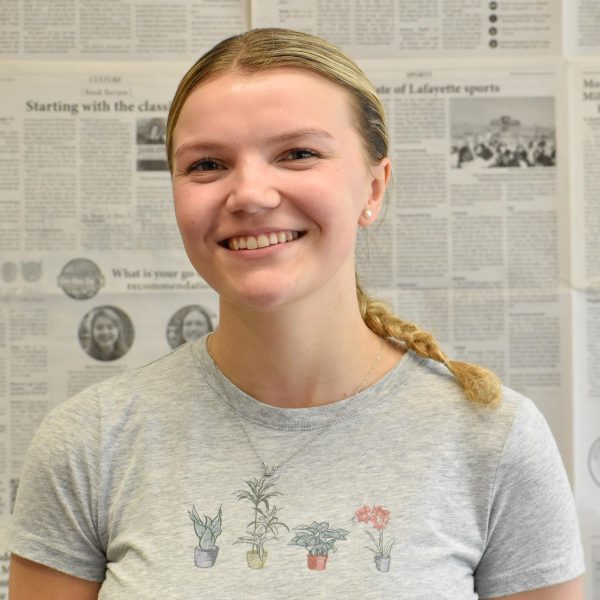In an alcove down a short hallway on the first floor of Pardee Hall, John Squarcia ’69 and Cathy Novello ’83 share an office. As the only two professors in the college’s education program — both part-time visiting faculty who have long worked in secondary education — the pair seeks to bring visibility to it.
Squarcia and Novello are more than just officemates. They are both Lafayette alumni and during his time as a high school principal, Squarcia hired Novello as a teacher for her first job out of school.
Novello graduated from Lafayette’s education program during a time when graduates earned a teaching certificate that allowed them to teach in public schools. This program disbanded around 1990 due to low numbers — during Novello’s time in the program, there were four professors for just eight students.
“It was the program here that sparked my interest in education, and I was a public school teacher for thirty years and loved it,” Novello said. “So were it not for Lafayette and the program, I wouldn’t have gotten to where I did.”
Squarcia helped revive the program in 1999.
“We started out with a small class,” Squarcia said. “Pretty soon the thing got bigger, and pretty soon we’re up to a class of forty-five.”
The program even issued teaching certificates under Squarcia. But as the program aged, according to Squarcia, “certification standards got kind of stricter and we really couldn’t get a lot of people out there in the field.”
Now, as Squarcia explained, students interested in education often go into programs like Teach for America or go on to graduate school for further education, while the Lafayette program itself currently has three traditional courses: Foundations of Education, Curriculum and Instruction I and Curriculum and Instruction II. After completing these courses, students can participate in an education-based internship.
Both Squarcia and Novello hope that the program can soon be converted into an official minor.
“The students would earn it,” Squarcia said. “When they take curriculum and instruction, they have to do thirty hours out in the school for the semester, three hours a week for ten weeks. That’s significant.”
Squarcia envisions the minor as a combination of education courses and educational psychology courses.
Devin Croake ‘24, who is currently completing an education program internship in a second-grade classroom at Forks Elementary School, is on track to exceed 80 hours in the classroom.
“I wish Lafayette had an education major,” Croake said. “I think a lot of people have some sort of interest in it, and I know people from my high school who wanted to apply to Lafayette but want to be teachers and didn’t end up applying just because of that specific reason.”
The limited offerings of the program do not deter student interest. According to Squarcia, 120 students took the foundational course last year.
“Typically, my classes are full,” Novello said. “I seem to get a lot of students in class who learned about [the class by] word of mouth. So for example, if I have someone on the volleyball team that loves the class, in the next semester, I have three or four volleyball players.”
The professors believe that all students, even those not interested in pursuing education as a career, could benefit from education courses.
“When you learn about public schools and you learn about … [kindergarten] to twelve education, you become a good citizen,” Squarcia said.
























































































































